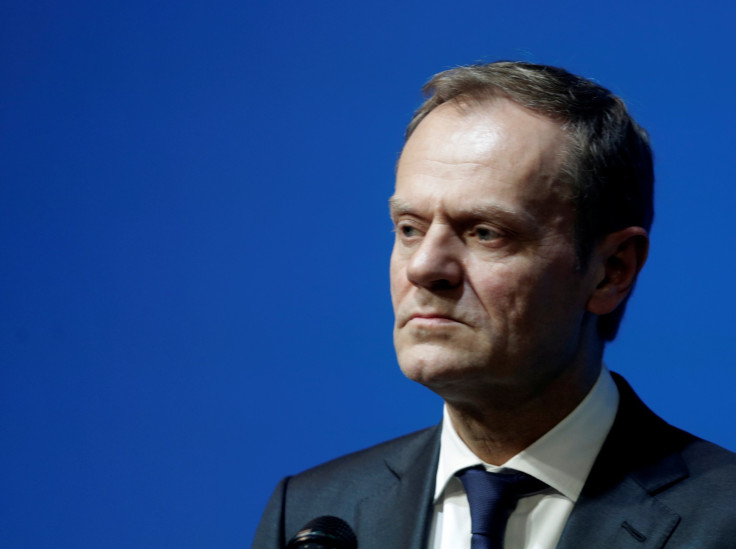Trump As Dangerous As Isis And Russia? Europe Council Leader Adds US President To Biggest External Threats To West

President Donald Trump was named Tuesday as an external threat to Europe by European Council President Donald Tusk, in which the U.S. leader joined the likes of Russia, China and radical Islam.
Tusk criticized Trump in a letter written ahead of an international summit he will chair Friday in Malta and echoed these remarks in a statement at the Estonian capital of Talin. In both communications, Tusk called on European Union leaders to recognize the serious threat posed by an "assertive China," "Russia's aggressive policy" and "radical Islam" such as the Islamic state group also known as ISIS, adding that these issues "as well as worrying declarations by the new American administration, all make our future highly unpredictable."
"For the first time in our history, in an increasingly multipolar external world, so many are becoming openly anti-European, or Eurosceptic at best. Particularly the change in Washington puts the European Union in a difficult situation; with the new administration seeming to put into question the last 70 years of American foreign policy," Tusk wrote later referencing fears of rising nationalism and an E.U. disintegration following the U.K.'s impending departure, Brexit, as contributing to his worries.
Tusk later met with the heads of E.U. Baltic member states Estonia, Latvia and Lithuania where he again emphasized the need for Europeans to come together against their foes, including Trump. In both statements, Tusk said that the E.U. was facing its worst crisis in 60 years since the 1957 signing of the Treaty of Rome, which established the European Economic Community, the predecessor of the E.U. He also suggested that the E.U. could take advantage of Trump's stringent trade policies to expand its own economic ties around the world.
United we stand, divided we fall. My letter on the future of the EU of 27: https://t.co/3aNm9mpRI2
— Charles Michel (@eucopresident) January 31, 2017
Trump has shifted the alliances of traditional U.S. foreign policy by forging a closer relationship with Russian President Vladimir Putin, whom the previous Barack Obama administration considered an adversary. Trump has also politically attacked allies Germany and France over what he has said are lax immigration policies and has received support from far-right parties across Europe, raising fears of a nationalist surge in a year when several major elections are set to take place.
Far-right, anti-E.U. parties Alternative for Germany and France's National Front have made gains in the polls of their respective countries' 2017 national elections. Recent figures cast National Front head Marine Le Pen as the frontrunner for her own country's race, in which current President Francois Hollande is considered the least popular president in France's modern history and won't seek re-election. E.U. supporters fear the rise of right-wing governments could weaken the union with countries enacting exit referendums similar to Brexit.
Tusk is set to speak at Friday's conference in Malta on the state of the E.U. following the U.K.'s exit and discuss the future of the international economic alliance.
© Copyright IBTimes 2024. All rights reserved.






















